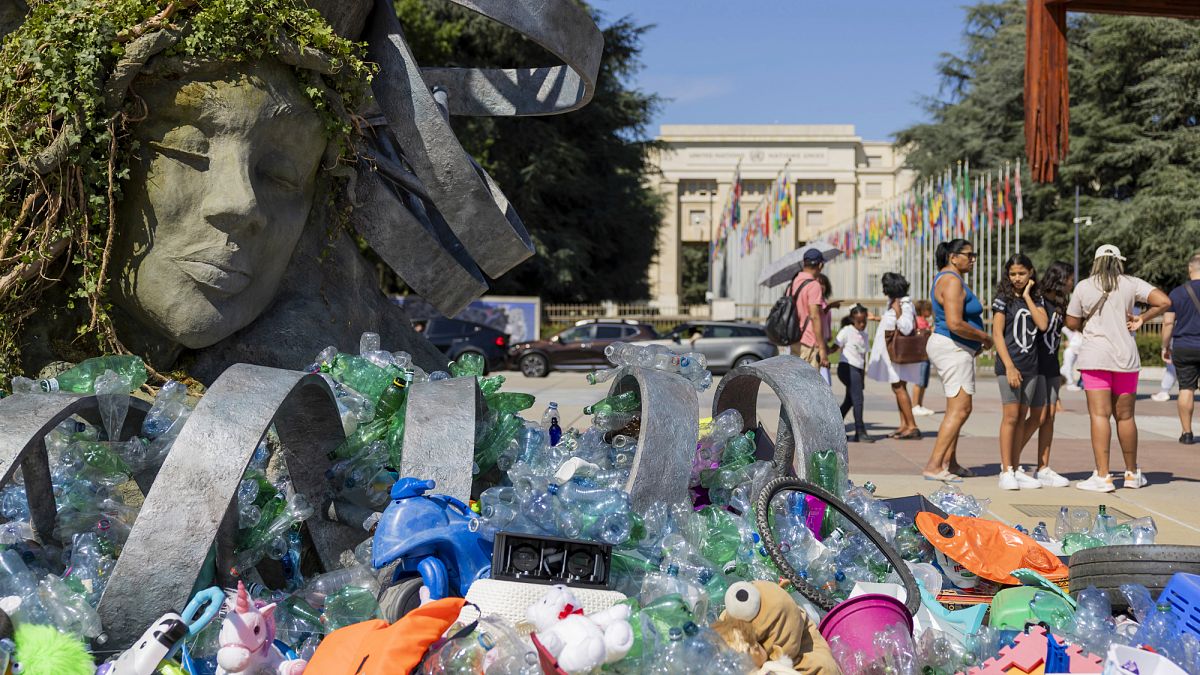ADVERTISEMENT
Is a global treaty to put an end to plastic pollution within reach?
Meeting in Geneva from 5-14 August, delegates from around 100 countries, including the EU, are tackling the problem at source, with the aim of setting legally binding targets to reduce plastic production.
“We really need to take urgent action,” Richard Thompson, professor of marine biology at the University of Plymouth and named in Time’s 100 most influential people of 2025 for his work on microplastics, told Euronews.
“This cannot be solved by waste management alone. We need to take systemic action throughout the supply chain, which will include producing fewer plastics, particularly plastics that are not essential to society.”
On the other hand, oil and gas exporters such as Saudi Arabia, Iran and Russia, supported by China, want to limit the scope of the text and confine it to waste management and recycling.
“Some countries are worried about the financial implications, particularly if they are a country that exports a lot of oil and gas, which is the main source of carbon for plastics. In addition, if they are a country that produces a lot of plastic products, they are concerned about the potential financial implications,” Thompson said.
The European Commission, which is taking part in the negotiations, is calling for a treaty to cover the entire life cycle of plastics, from production to disposal.
It also backs a gradual phase-out of certain plastics that are harmful to human health and the environment.
460 million tonnes
Thompson is calling on the negotiators to take action so that they can “look the next generation in the eye.”
“Plastic pollution is a global environmental problem. Plastic contaminates our planets literally from our deepest oceans to our highest mountains. It is present in the ice from the Arctic Sea to the equator,” he says.
“The microplastics that I have spent a large part of my career working on are now present in the air we breathe, the water we drink and the food we eat.”
460 million tonnes of plastic are produced every year and 81% of plastic products end up as waste in less than a year.
Of this waste, only 9% is recycled, 20% is incinerated, more than 20% is abandoned in nature and almost half ends up in landfill sites.
Ambitious targets
According to Thompson, an ambitious treaty must “address the entire life cycle of plastics”.
He is also calling for regulation of the “16,000 chemicals used in plastics production, 4,000 of which are potentially harmful.”
He believes the treaty should establish sustainability criteria for the design of plastics and plastic products, ensuring they are reusable or longer-lasting, contain fewer microplastics, and can be recycled within a circular economy.
Clear labelling would also be needed to make these products easily identifiable.
He also emphasises the importance of securing appropriate financing, to ensure the poorest countries are not left behind.
But time is running out.
The negotiations, involving delegates from 176 UN member states, NGOs, scientists, and industry representatives, are set to conclude on 14 August.
The process began in March 2022, when 175 countries at the United Nations Environment Assembly adopted a resolution to negotiate a legally binding agreement to tackle plastic pollution.
The fifth round of talks, held in late 2024 in Busan, South Korea, was initially expected to be the final one but ended without an agreement.
